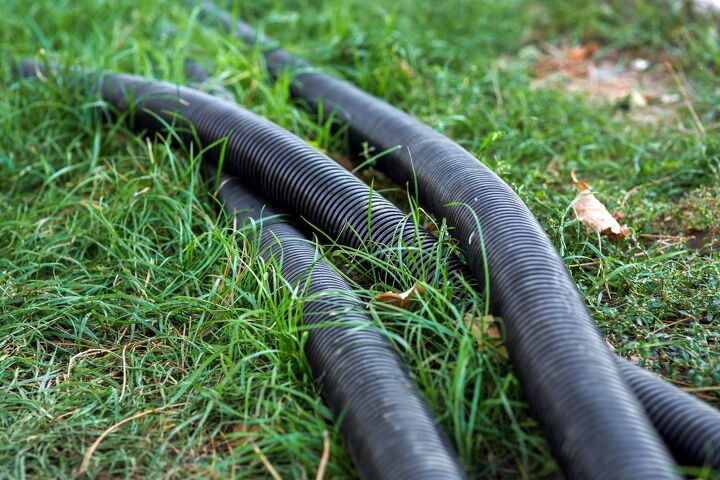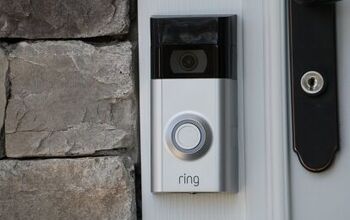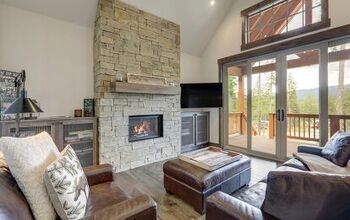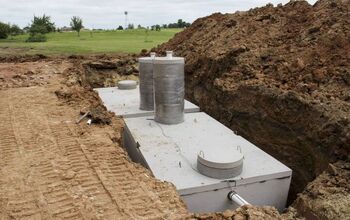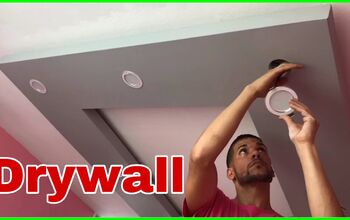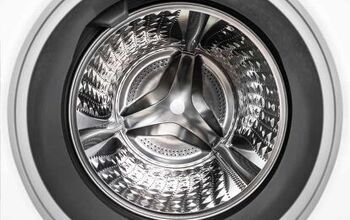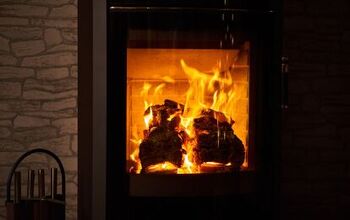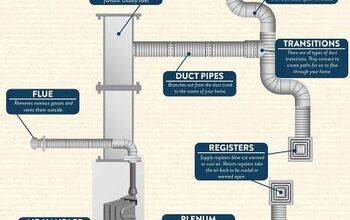Can I Run Electrical Conduit Above Ground? (Find Out Now!)

Your new workshop is sitting happily behind your landscaped backyard. The only thing lacking is electricity in the shop. Unfortunately, the pedestal that holds your electric meter is on the other side of your beautifully landscaped backyard. Ditching to run the electrical lines underground would destroy much of your landscape. You wonder if you can run electrical conduit above ground?
It is within NEC code to safely and legally run electrical conduit above ground. When running electrical wires above ground it should be acceptable to use flexible and rigid conduit to successfully complete the job. Be sure to research the specific criteria for your project, as rules will vary based on the specifics of the area in question.
For a homeowner planning a do-it-yourself above-ground conduit installation, it is important to thoroughly understand the code requirements and your local building and electrical codes. An improper installation of electrical service can be dangerous to anyone who meets the conduit or the electrical circuit.
Do You Need to Hire an Electrician?
Get free, zero-commitment quotes from pro contractors near you.

Understanding the National Electrical Code
The National Fire Protection Administration publishes the National Electrical Code. All fifty states in the United States have adopted the current version of the NEC. The NEC stands as the standard for electrical work in commercial and residential buildings.
Safety is the overriding objective of the NEC. It is important that any electrical wiring or service in your home conform to the NEC for several reasons.
- Electrical installations that meet the NEC requirements are proven to be safe.
- Most local building codes require all electrical wiring and service to meet the NEC standards
- The resale value of your home may suffer if the electrical wiring is substandard and doesn’t meet the NEC.
If you plan a do-it-yourself electrical wiring project, an understanding of the NEC code requirements is critical. If your home is ever subject to a home inspection or code inspection, failing to meet NEC standards could become very expensive if the work requires replacement.
What Does the NEC Say about Above Ground Conduit?
A look at the NEC electrical codes for running electrical wiring in conduit points out many important considerations when running conduit above ground. These may affect your plan for using above-ground conduits for your electrical project.
- Generally, both flexible and rigid conduits are suitable for above ground installations
- Conduits used above ground must have ratings for exposure to UV light
- In damp locations, the NEC recommends that conduits and all boxes be waterproof.
- If using non-metallic conduits (PVC), you must install a green ground wire in the conduit with the other wire.
- Joints and fitting should allow the conduit to expand and contract with temperature changes.
- Above-ground conduits may not run along or be attached to boundary fences.
- All circuits in above-ground conduit runs require protection with a GFCI circuit breaker or outlet.
Remember that the purpose of running an above-ground conduit for your electrical service is for your protection. That means protecting the wiring from damage and the elements.
Is Metal or PVC Conduit Better for Above-Ground Installations?
In general, most electrical contractors prefer to install PVC conduits in above-ground exposed projects. Both metal and PVC conduits have advantages and disadvantages to consider.
Advantages of PVC Conduit Above Ground
- PVC electrical conduits are stable and are not affected by corrosion.
- When installed properly, PVC conduits provide adequate protection for the wiring in the conduit.
- Installing PVC conduit is often faster due to its lightweight and working characteristics
- The cost of PVC conduit and fittings is often less than a comparable metal conduit and fittings.
Advantages of Metal Conduit
- Metal conduit, especially rigid metal conduit, offers much better protection than PVC conduit. Rigid metal tubing provides superior resistance to impact damage. In some cases, rigid metal tubing works in high-traffic areas without problems. Some installations may even allow cars to pass over the tubing.
- It may not be necessary to run additional wiring for grounding in a metal conduit installation. The conduit often is suitable for grounding the circuits. Check the NEC for more information.
Disadvantages of PVC Conduit Above-Ground
- PVC conduit may not provide adequate protection for the electrical wiring in high-traffic or high hazard areas. Don’t install PVC conduit above ground where it is subject to impacts that can break or crack the PVC conduit.
- Some building codes may specify further restrictions on the use of PVC conduit above ground. Make sure you are familiar with not only the NEC but also any additional local requirements.
Disadvantages of Metal Conduit Above Ground
- Metal conduit is heavier than PVC conduit and may require additional support under some circumstances
- Bending and fitting metal conduit often takes longer than PVC conduit, which is much more flexible than metal tubing.
- Metal conduits are typically more expensive than PVC conduits, as are the fittings.
The circumstances of your project often determine which type of conduit is best for your job. In most cases, you should let the job requirements dictate which type of above-ground conduit you install.
What Are the Options for Above Ground Conduit Installations?
As with almost any construction project, there are different options available to complete any project. The same holds for your electrical wiring project. Understanding the best application for each of these conduits helps match your project needs to the type of conduit you should install.
Schedule 40 PVC Electrical Conduit
Schedule 40 PVC electrical conduit is probably the most common PVC conduit used in electrical wiring projects. Schedule 40 PVC conduit is suitable for installation in:
- Walls, ceilings, and floors
- In attics or crawl spaces
- Underground or above ground.
Schedule 40 PVC conduit is available with UF light protection making it suitable for installation where exposure to direct sunlight occurs.
Schedule 80 PVC Electrical Conduit
Schedule 80 PVC electrical conduit is interchangeable with Schedule 40 PVC conduit. The difference between the two is the wall thickness of the tubing. Schedule 80 PVC electrical conduit has thicker walls giving it better resistance to impacts and other damage.
Non-Metallic Flexible Conduit
Several varieties of flexible PVC conduits are available. These flexible PVC conduits offer the advantage of easy installation where you must make many bends or turns during an installation. Using the proper fittings, the flexible PVC conduit is waterproof and suitable for wet locations.
Pulling wire through a flexible PVC conduit is more challenging than in rigid PVC conduits. In addition, flexible PVC conduit needs more support long the conduit run than the stiffer varieties of PVC conduits.
Rigid Metal Conduit (RMC)
Rigid Metal Conduit uses thick wall galvanized tubing for its construction. Where the electrical circuit faces possibilities of damage RMC is the preferred material for the conduit runs. Electrical installations in warehouses, manufacturing plants, and industrial applications where the conduit may be struck with heavy objects or equipment, RMC is often specified for installation.
Intermediate Metal Conduit (IMC)
IMC is much like RMC but is lighter weight and has thinner walls. These characteristics make IMC less suitable in heavy hazard areas. Typically, IMC is used in commercial applications where local building codes require enclosing all electrical circuits in metallic conduits.
Electrical Metallic Tubing (EMT)
Electrical metallic tubing is most often used in commercial and light industrial applications where the chance of damage rules out PVC conduits. EMT is lighter with thinner walls than IMT and is easily bent using a simple conduit bender. The thinner walls make installation faster than the heavier walled varieties of conduit. If used in exposed outdoor situations, special watertight fittings are required.
Other Considerations for Above-Ground Conduit Installations
Before you begin installing an above-ground conduit, there are some other considerations.
- Consider the aesthetics – Finding places to install above-ground conduits can be challenging. If you are installing conduits around our home, you want to be as unintrusive as possible. Keeping a conduit run inconspicuously above ground without walls or other supporting structures may be nearly impossible.
- Safety – Keeping an above-ground conduit run undamaged can be a problem. Running conduit above ground exposes the conduit to physical damage and damage from the elements. Often above-ground conduit installations mean more maintenance around your home or business.
- Restrictions – Before starting an above-ground conduit installation, check your local building and zoning officials and your homeowner’s association. Making sure that your plans don’t violate any codes or covenants can save you money in the long run.
You may find that the additional cost of putting your electrical circuits underground is an investment that pays off in the future. Worries about disturbing landscaping are often easily mitigated with some judicial planning. Most landscapes recover quickly to hide the conduit installation perfectly.
Putting your conduit underground also provides additional protection. Most underground conduit installations last for many years without any problems or maintenance needs.
Do You Need to Hire an Electrician?
Get free, zero-commitment quotes from pro contractors near you.

Installing Conduit Above-Ground
Installing a conduit of almost any kind above ground is perfectly acceptable. There are some requirements for support and a few places that you can’t install an above-ground conduit. You should check with your local building officials. Some local codes require any electrical work on your property to be performed by a licensed electrician and to have a permit.

Dennis is a retired firefighter with an extensive background in construction, home improvement, and remodeling. He worked in the trades part-time while serving as an active firefighter. On his retirement, he started a remodeling and home repair business, which he ran for several years.
More by Dennis Howard



